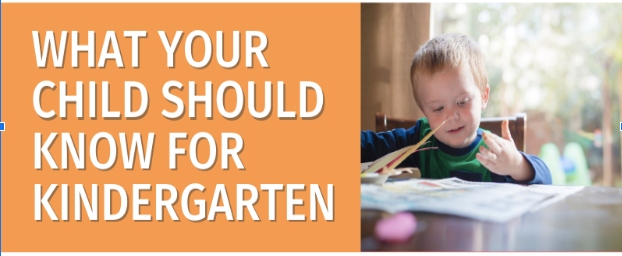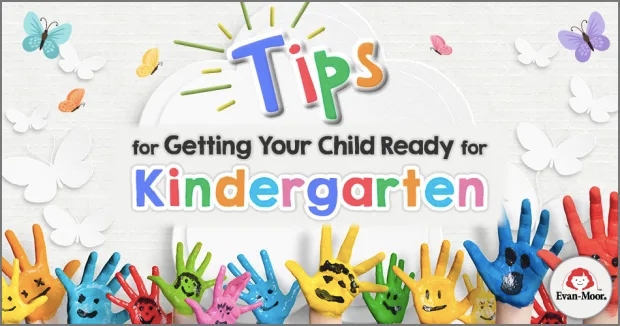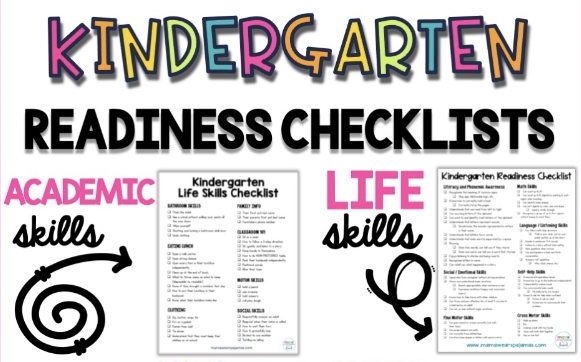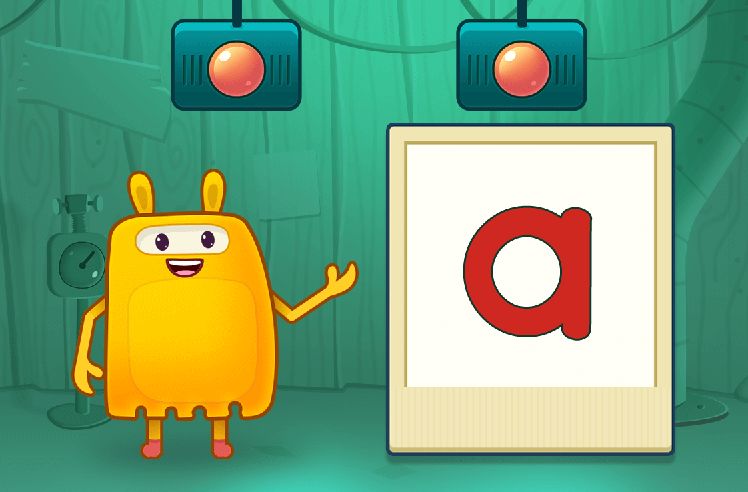Are you wondering if your little one is ready to take the big leap into kindergarten? The transition to kindergarten is a significant milestone in a child’s life, filled with new challenges and opportunities for growth. Ensuring your child is ready can set the foundation for a successful educational journey. This is where a “kindergarten readiness checklist” becomes an invaluable tool for parents. It helps gauge whether your child has acquired the essential skills to thrive in a kindergarten setting.
Math & ELA | PreK To Grade 5
Kids see fun.
You see real learning outcomes.
Watch your kids fall in love with math & reading through our scientifically designed curriculum.
Parents, try for free Teachers, use for free
This blog will dive deep into what kindergarten readiness means and why it’s so important. We’ll explore the critical skills and knowledge that kindergarteners should possess and provide you with a comprehensive kindergarten readiness checklist. If you’re curious about the academic milestones your child should be hitting or how to foster their emotional and social skills, this guide is for you.
Related Reading: What is the Right Kindergarten Age for Kids?
How Do You Know if Your Child is Ready to Start Kindergarten?

Figuring out if your child is ready for the big leap into kindergarten can feel like solving a puzzle. Luckily, the kindergarten checklist for parents is designed to help you see the full picture. Let’s break down the indicators:
1. Social Readiness
- Can your child play well with others? Look for their ability to share, take turns, and participate in group activities. Social readiness is about being able to interact positively with classmates and teachers.
- Can they follow simple instructions and adapt to structured settings? This is a big part of kindergarten life.
2. Emotional Readiness
- Is your child able to talk about their feelings in a healthy way? Recognizing and managing emotions is vital for navigating kindergarten’s new experiences.
- Can they cope with separation from you without excessive anxiety? Being able to adjust to being apart during school hours is a sign they’re emotionally ready.
3. Physical Readiness
Skills like using the bathroom independently, washing hands, and opening lunch containers are important for kindergarten. It shows they can manage without constant adult assistance.
4. Fine and gross motor skills
Holding a pencil, cutting with scissors, and coordinating movements for play are physical readiness signs. These skills are essential for classroom activities and playtime.
Here are some fine motor skills games to give your child a head start:
5. Cognitive Readiness
Recognizing letters, numbers, and shapes indicates cognitive readiness. It’s not about being able to read or do math but having a curiosity and understanding of basic concepts.
Listening and communication: Can your child listen to a story without interrupting and communicating their thoughts? Being able to follow a story and share ideas is crucial for learning in kindergarten.
6 Tips for Parents to Prepare Their Children for Kindergarten

Preparing your little one for kindergarten is a journey that can be as fun as it is important. In the months leading up to the big day, there are several simple yet effective things you can do to help your child feel ready and excited for this new adventure. Here are some practical tips for parents to ease the transition into kindergarten:
1. Talk About Kindergarten
- Regularly talk about kindergarten in a positive way. Mention the fun things they’ll do, like making friends, playing games, and learning new things.
- If possible, visit the school with your child before the term starts. Seeing the classroom playground and meeting some teachers makes the first day less daunting.
2. Establish Routines
- Get into a consistent morning routine that mirrors what they’ll experience when school starts. This includes waking up, getting dressed, and eating breakfast at the same times they will on school days.
- A good night’s sleep is crucial for young learners. Establish a bedtime routine that ensures they get enough rest, making mornings easier.
3. Develop Independence
- Encourage your child to practice dressing themselves, using the bathroom independently, and washing their hands. These are important steps towards self-reliance.
- Teach them to keep track of their belongings, like a backpack or lunchbox. This helps them understand the importance of looking after their things.
4. Encourage Social Skills
- Arrange playdates with other children. This can help them practice sharing, taking turns, and group interaction.
- Encourage your child to express their feelings and listen when they do. This builds emotional awareness and vocabulary.
Related Reading: How To Teach Social Skills To Kids
5. Boost Academic Skills
- Spend time reading together every day. Ask questions about the story to improve their understanding and encourage curiosity.
- Incorporate counting into daily activities, like counting steps, toys, or ingredients while cooking.
Start off on the right foot with these engaging counting games for kindergarteners:
- Play games that involve identifying letters of the alphabet. This can be through puzzles, apps, or simply spotting letters in the environment around you.
Begin with these letter games:
6. Make Learning Fun
- Use games and puzzles to make learning fun. Look for activities that involve numbers, letters, or problem-solving.
- Encourage drawing, painting, and craft activities to spark creativity and fine motor skills.
Start with these art and creativity games that spark creativity and enhance fine motor skills:
When Should You Start Making a Kindergarten Checklist?
Creating a kindergarten preparation checklist is a proactive step in ensuring your child feels confident and prepared for their first school day. Knowing when to start and complete this checklist can make all the difference in your child’s transition to kindergarten. Here’s a simple guide on the ideal timeline for using your “ready for kindergarten checklist” and how starting early can lead to targeted preparation:
Starting Early
One year before kindergarten: Begin observing and noting your child’s skills in various areas such as social, emotional, physical, and cognitive development. This early start gives you ample time to identify areas needing more support or practice.
Mid-Year Before Kindergarten
- 6 months before kindergarten starts: This is a good time to review the checklist thoroughly. Assess progress in basic literacy and numeracy skills, social interactions, and independence in self-care tasks.
- Focus on targeted areas: If you notice any areas where your child could grow more, now is the time to introduce fun, educational activities that support those skills. Targeted preparation can be very effective, whether it’s enhancing fine motor skills through drawing and cutting or boosting social skills with playdates.
Related Reading: Best Learning Activities for Your 3 Year Old Preschooler
Leading Up to Kindergarten
- 3 months before kindergarten: Revisit the kindergarten readiness checklist to ensure your child is on track. Continue focusing on areas that need improvement and familiarize your child with the routine of a school day.
- Visit the school: If you haven’t already, try to visit the school with your child. Familiarizing them with the new environment can ease anxiety and build excitement.
One Month Before
The final stretch: By now, your preparation should be well underway. Use this time for a final review of the checklist and reinforce any areas that need attention. Also, start getting into the school day routine, adjusting bedtimes and morning activities to match the school schedule.
How Early Assessment Facilitates Targeted Preparation
Starting early with your kindergarten readiness checklist allows you to tailor your approach to your child’s needs. It helps you focus on areas that will benefit your child most, making preparation more efficient and effective. Early assessment and preparation mean that by the time kindergarten starts, your child will be academically ready and have the social, emotional, and physical skills to thrive.
What Skills Will My Kindergartener Develop?
As your child gets ready for kindergarten, it’s helpful to know the skills they’ll develop across different subjects. Understanding these can guide your preparation and support at home.
1. Language Arts
- Recognizing letters: Children should be able to recognize most letters of the alphabet and understand that letters represent sounds.
Set the foundation with these letter sound games:
- Pre-writing skills: Holding a pencil correctly and being able to draw basic shapes are foundational skills for writing.
- Listening and understanding: Listening to stories and answering simple questions about them shows comprehension.
2. Mathematics
- Counting: Being able to count objects up to at least 10 and starting to recognize numbers are key math skills.
Begin here:
- Understanding basic concepts: Children should grasp basic concepts like more or less, big or small, and start to recognize shapes.
Start with these educational math games:
Related Reading: Most Important Kindergarten Math Concepts
3. Science
- Observing and questioning: Showing curiosity about the natural world, asking questions, and making observations are essential science skills.
- Identifying patterns: Recognizing simple patterns in nature or sequences of objects helps develop critical thinking.
4. Social Studies
- Understanding community roles: Knowing about people’s jobs and how various community helpers contribute to society.
- Basic geography: Recognizing simple maps, such as a map of the classroom or home, helps children understand spatial concepts.
5. Physical Education
- Gross motor skills: Running, jumping, and throwing are physical activities that help develop a child’s gross motor skills.
- Following instructions: Participating in group games and following simple rules is important for physical education.
6. Art
- Using art materials: Safely using basic art materials like crayons, markers, and paintbrushes encourages creativity.
- Expressing creativity: Children should feel comfortable expressing themselves through drawing, coloring, and crafting.
Fostering these skills at home doesn’t have to be complicated. Integrating playful and engaging activities into your daily routine can make learning fun and effective.
Related Reading: What Do Kids Learn in Kindergarten: 5 Important Concepts
4 Things to Consider When Assessing Kindergarten Skills
When assessing your child’s readiness for kindergarten, it’s important to consider the whole picture. This means looking beyond just academic skills to understand their development in a broader sense. Here are some key points to keep in mind:
1. Role of Developmental Milestones
- Whole-child approach: Consider how your child grows in all areas, not just academically. Developmental milestones in physical, social, emotional, and language areas are all clues to overall readiness.
- Pacing is personal: Every child develops at their own pace. Meeting milestones earlier or later than peers don’t necessarily predict kindergarten success.
2. Range of Skills for Readiness
- More than academics: Readiness involves a mix of skills. Social-emotional development, like managing emotions and working with others, is just as important as knowing letters and numbers.
- Independence matters: Simple self-care abilities and following routines show readiness for the school environment.
3. Assessing Without Pressure
- Observation in play: You can learn a lot about your child’s readiness through play. Watch how they solve problems, interact with others, and express creativity.
- Talk about school positively: Make discussions about school and learning exciting and positive. This helps children feel eager and confident about starting kindergarten.
- Use everyday moments: Incorporate learning into daily activities in a natural way. Counting toys during clean-up or discussing the weather can be educational without feeling like a test.
4. Supporting Your Child
- Encourage curiosity: Answer questions, explore together, and let your child lead in choosing activities. This supports a love for learning.
- Build on strengths: Focus on what your child does well as a foundation for introducing new concepts. This boosts confidence and motivation.
- Seek support if needed: If you have concerns about your child’s development, don’t hesitate to contact preschool teachers, pediatricians, or other professionals for guidance.
Conclusion
Remember, preparing for kindergarten is not about drilling facts or pushing your child to meet every academic benchmark early. It’s about nurturing a well-rounded, curious, and confident learner excited to explore the world of kindergarten. By considering the full range of skills and assessing readiness in a supportive, pressure-free way, you’re setting the stage for a positive start to your child’s educational journey.
Frequently Asked Questions (FAQs)
Is there a test to see if a child is ready for kindergarten?
Yes, some schools offer kindergarten readiness assessments that evaluate a child’s social, emotional, physical, and academic skills. These assessments can vary by school and are meant to guide preparation, not exclude children from attending.
How do I prepare for a kindergarten assessment?
Prepare by engaging in everyday learning activities that build foundational skills, such as reading together, practicing counting, and encouraging play that develops social and emotional skills. Keep the experience positive and stress-free for your child.
What is the readiness assessment for kindergarten?
A readiness assessment for kindergarten is a tool used by educators to evaluate a child’s development in key areas such as academic abilities, social and emotional skills, and physical development, helping to identify areas where they might need support or enrichment.




















































